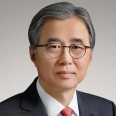On October 9, the Chinese government forcibly repatriated 600 North Korean defectors as if conducting a military operation. According to Elizabeth Salmon, the UN Special Rapporteur on Human Rights in North Korea, about 2,000 defectors were detained in facilities within China. Now, with 1,400 remaining, they will also soon be forcibly repatriated to North Korea, where they will likely face imprisonment and cruel treatment at detention facilities, including torture and abuse.
According to the Congressional-Executive Commission on China (CECC), China is preparing to repatriate North Korean defectors it has detained to North Korea if trade between North Korea and China resumes. The issue of forced repatriation by the Chinese government was raised at the 85th session of the UN Convention on the Elimination of All Forms of Discrimination against Women (CEDAW) in Geneva, Switzerland in May of this year. China stated that “we do not consider people who come for economic reasons to have refugee status” and that North Korean residents involved in “illegal activities” would be “repatriated to North Korea.” In response, Zachary Nunn, a Republican Congressional Representative from Iowa, criticized China, stating that North Korean defectors are being “thrown straight back into that meat grinder by the Chinese government.”
The forced repatriation of North Korean defectors by China violates international law. According to the ‘1951 UN Convention Relating to the Status of Refugees’, considering the oppressive rule and dire conditions in North Korea, defectors qualify as ‘refugees.’ However, both Russia and China categorize all North Korean defectors as ‘economic migrants’ without individual refugee status assessments, systematically repatriating them illegally and thereby violating the principle of non-refoulement under the ‘Refugee Convention’.
Even considering the ‘The Convention against Torture and Other Cruel, Inhuman or Degrading Treatment or Punishment (the Torture Convention)’, the forced repatriation of North Korean defectors is unacceptable. According to the ‘White Paper on Human Rights in North Korea 2022′ published by the Korea Institute for National Unification, Kim Jong-un has issued directives since coming to power to “exterminate three generations” or “execute on the spot” North Korean defectors. There are also reports of providing live ammunition to North Korean soldiers with orders to shoot defectors on sight.
Even if one were to consider China’s assertion that North Korean defectors escaped for economic reasons, the very fact that defection occurred implies that North Korea lacks the capacity to adequately support its own citizens. Taking into account China’s status as a permanent member of the UN Security Council, the forced repatriation of North Korean defectors becomes even more unjustifiable. ‘Fundamental human rights’ and ‘the dignity and worth of the human person’ are principles outlined in the preamble of the UN Charter, and as a permanent member of the UN Security Council, China should uphold these principles and serve as an exemplary model.
China could learn from commendable examples. When Venezuela, under the Nicolás Maduro regime, faced mismanagement and an economic crisis, leading to over 5.6 million people fleeing since 2015, neighboring countries such as Colombia, Chile, and Peru either accommodated them as much as possible or opened pathways for them to move to other countries. European nations also welcomed refugees who entered due to the turmoil in North Africa and the Syrian civil war since the 2010s.
Our government also has work to do. According to Article 3 of our constitution, which states, “The territory of the Republic of Korea shall consist of the Korean peninsula and its adjacent islands,” North Korean defectors are unequivocally our citizens, and we have a duty to welcome, support, and assist these defectors, who are escaping for survival and freedom, in adapting to Korean society.
To prevent the forced repatriation of North Korean defectors, it is essential to strengthen international solidarity. Collaborating with organizations that have been highlighting the issues of repatriation and urging policy changes by China, such as the U.S. Congress and White House, UN agencies, and international non-governmental organizations, will help amplify pressure on China and encourage a shift in its policies.
The South Korean government should engage with the Chinese government by sharing information about North Korean defectors detained in China and urging the initiation of refugee status assessments for them. Efforts should be made to facilitate interviews by diplomats from our embassies to determine defectors’ willingness to relocate to South Korea and to investigate potential instances of mistreatment.
The government should formally declare its commitment to welcome all North Korean defectors who wish to come to South Korea. It is imperative to rectify past mistakes where the previous administration played a passive role in overlooking North Korea’s human rights situation. This is the spirit of our constitution.
* The view expressed herein was published on October 17 in The Dong-a Ilbo and does not necessarily reflect the views of The Asan Institute for Policy Studies.

 Facebook
Facebook Twitter
Twitter